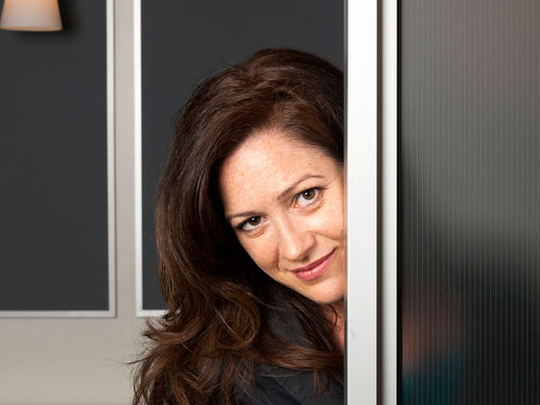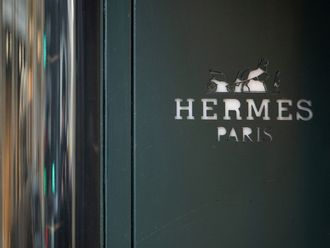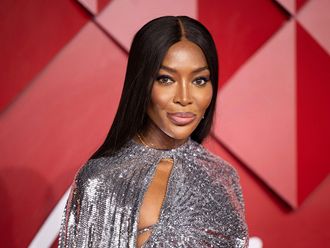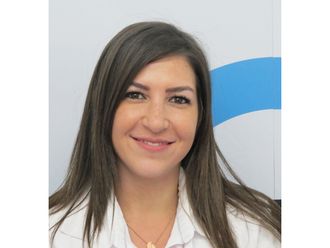
Washington: Jennifer Tress can’t change who is on the cover of Cosmo.
She can’t stop college guys from sharing links from BroBible and Hot or Not.
But she can sit in your university’s common room and tell you how her husband cheated on her because, he said, she wasn’t “pretty enough”.
And she will tell you how years after their divorce his painful words led her to become what she calls “an accidental body-image activist”. Tress, a consultant for the federal government by day, is bringing her multimedia salons on self-esteem to 100 colleges over the next few months.
You’re not pretty enough. It’s not a nice thing to say, or hear, as Tress knows. It’s almost the reverse message of the soundtrack to soothe low self-esteem that college students are used to: One Direction crooning “You’re insecure / Don’t know what for / You’re turning heads when you walk through the door,” or Bruno Mars promising “You’re amazing / Just the way you are.”
To Tress, these fluffy anthems of self-acceptance are useful but not as powerful as confronting your shortcomings with honesty. That’s what she offers in her meetings with college students — a chance to talk about societal expectations of beauty, why they’re hurtful and also tough to ignore, and what to focus on instead.
Tress’s college tour coincides with the publication of her book of comic stories, ‘You’re Not Pretty Enough: You Can’t Make Up Real Life’. The book has a retro-looking photograph of her 13-year-old self on the cover, sporting alarmingly bushy eyebrows and a frizzy mullet.
Now 42, Tress regularly has her eyebrows waxed. She has thick, frizz-free brown hair that flows over her shoulders, clear skin and a pleasant smile. She’s, well, pretty.
“I have been 20, even 40 pounds heavier than this. I like to eat. I like to drink,” she offers while setting up for one of her salons last month at George Mason University in Arlington, Virginia. “When people hear what I’m doing, they say, ‘I don’t know, Jen, you are pretty, so should you do this?’ “ She relates this anecdote with the breezy confidence of a woman who once had a bad spell, has come out of it and is using her newfound confidence to inspire others.
She says she didn’t see “a space that was trying to connect to this really common feeling. So I created one.”
She has also launched a video project on YouTube that she hopes will do for young people with body and beauty image issues what Dan Savage’s ‘It Gets Better Project’ does to help prevent suicide among LGBT youths.
In some ways, her quest can feel a little naive, even futile, in a world where beauty is an empirically advantageous trait. Good-looking people are paid better, have an easier time getting loans and even get milder prison sentences, according to recent studies by Daniel Hamermesh, a University of Texas labour economist and the father of pulchronomics, or the economic study of beauty. Hamermesh says that even though beauty bias undermines equal opportunity laws, there’s not much we can do to change that inherent discrimination.
But that reality is why Tress’ self-esteem salons can feel like salve on a burn. The blistered skin may turn into a scar that will always be there, but the temporary relief is still soothing.
Young women today don’t feel bad just about the face looking back at them in the mirror but also about how they look on Instagram and how many likes their new Facebook profile picture gets.
If Generation X dreaded the awkward yearbook shot and the mortifying middle school “glamour shot”, today’s generation has a dozen more platforms to hate themselves on.
They’re celebrities in their own mini-worlds — or with their 340 followers — and their bad hair days or drunken dance moves are recorded online, possibly forever.
In a 2012 survey that Tress conducted with 450 area college students, most women reported that they wondered if they weren’t attractive enough anywhere from every three minutes to once a day.
“It’s not like you can rip up a Facebook photo, so we constantly have to be, like, ‘Please untag me! Please!’ “ shouted Lindsey Wahowiak, 28, who lives in Washington’s Columbia Heights neighbourhood and came to the recent talk at George Mason. “I really have to wonder why I care. So what if my face looks fat in a few photos? Sometimes, my face looks like that.”
These are the types of comments that Tress talks through with the people who arrive at her salons. About 30 joined her on a recent summer evening in a conference room at George Mason, laughing nervously while entering the room marked with a “You’re not pretty enough” sign. Tress led the crowd through exercises to combat negative “self-talk” and encouraged the audience to realize how common feelings of self-loathing can be.
There are a few men who come to her sessions, some with eating disorders and others who never felt they were good-looking by mainstream standards.
“It’s not easy being a Korean American in Mississippi,” said Chuck Na, one of two men who attended the George Mason event. “I was bullied a lot and just felt like being Asian-looking was this weird thing.”
The “YNPE movement,” as Tress calls it, started after she got involved in the live storytelling scene in Washington. While she is now happily married to a District of Columbia police officer who helps her set up most of her salons, she knows the anecdote about her ex-husband is a story she has become known for, a humiliating crowd-pleaser. It resonated with people, and they would yell out at shows, “Hey, you’re the not-pretty-enough girl,” she said.
Soon, she created the website yourenotprettyenough.com, thinking it was an inside joke for people who knew the story.
But she noticed that the website started getting a startling amount of traffic from people Googling variations of the phrase. Around the same time, she heard that tweens and teenage girls were uploading videos of themselves to YouTube and asking the question, “Am I ugly?”
“It really hurt me,” she said of seeing these raw videos. “And it just sparked something in me to do something about it.” And the self-esteem salon was born.
Aside from leading classic confidence-building discussions, she gets the crowd pumped up by playing music — “So Fly,” by Elle Varner, is a favourite — and comedy videos.
But the bulk of the events involves Tress giving salon participants a few minutes of relief — and maybe some tools to use once they leave.
“It’s tough out there, and sometimes you have to prepare to be horrified,” said Elizabeth Trabert Piper, 22, a recent graduate of Loyola University who came to the gathering and had started a “Beauty and Women” group at her school. “But I think Tress gives us a chance to at least vent about it. And that’s a good start.”












